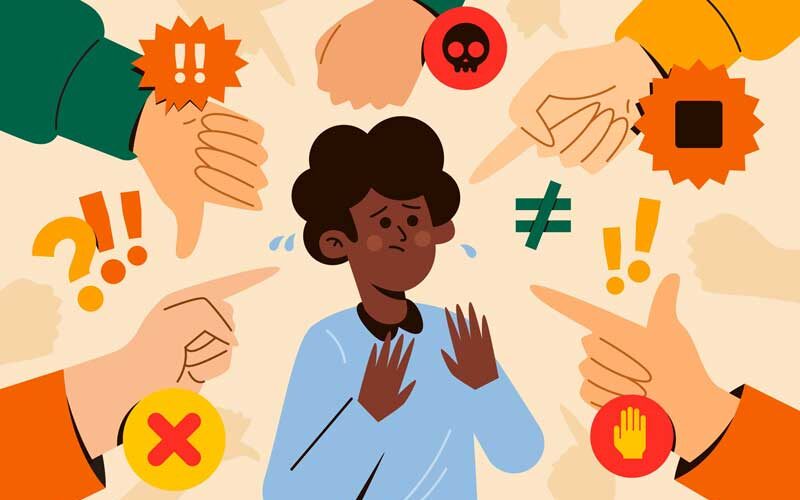The psychological history of racism
There were numerous theories in the early days of attempting to explain why racism occurs or why it persists. Charles Darwin’s idea of “survival of the fittest” was incorporated into one of the best-known theories. It was hypothesized that racism gave some survival advantages. This notion was refuted nonetheless because contemporary hunter tribes have not discovered a means of rejecting outgroups. Additionally, some ideas proposed that humans categorize things in order to make sense of the world, and racism was just one aspect of this process (Cuncic, 2022). Others suggested that there were variations in the brains of different races.
What could make a person racist?
There are numerous, and perhaps some personal, reasons as to why people turn into racists. Below are examples of the most common causes:
- A person who is insecure about themselves could look for a group to fit into. They might, however, start to develop biases or alienate those who are not in their group after they have found one. In the presence of others who hold a sense of superiority, they may develop a similar mindset.
- Most people don’t have empathy or compassion for strangers; they only start to feel at ease and show empathy for those they spend a lot of time with. In certain situations, this could result in a person being indifferent to people of different races.
- When people become aware of their own shortcomings and begin to feel horrible about them, they may choose to project their self-loathing onto other people rather than appropriately addressing it.
- Racial discrimination can occasionally result from mental illness. For instance, those with insecure personality disorders like paranoid personality disorder and narcissism are more likely to participate in racist actions.
- Because of the way it occasionally depicts particular races, the media contributes significantly to the creation and maintenance of racism. It either creates or feeds prejudice and the belief in racism (Cuncic, 2022).
Casual racism
Although “casual” racism does not exist, the term has gained traction over time. Even though hate speech and physical violence are widely regarded as unacceptable types of racism, some people nonetheless harbor small prejudices that have the potential to hurt others. Saying, for instance, that all Black people excel in athletics indicates bias and stereotypes. Alternatively, posing queries like “Where are you actually from? is a type of conviction or broad presumption that someone’s look precludes them from being from a particular area (York, 2023).
Prejudice and racism
When questioned, 40% of white Americans answered that they believe that the United States has made necessary changes to give white and black people equal rights. However, only 8% of black Americans said that this was the case. It is very easy to confuse prejudice with racism. Prejudice can be stereotypes and ideas that could disrespect someone and make them angry or frustrated, and they manifest in forms such as offensive jokes or insults. Still, it is unlikely that there will be any further negative implications. However, racism is a collection of ideas and concepts that results in unequal distributions of power based on race. They are stronger and more offensive than simple prejudice (Cole, 2020).
References
(Cole, N.).,2020. What’s the Difference Between Prejudice and Racism? [online] ThoughtCo. Available at: https://www.thoughtco.com/racism-vs-prejudice-3026086 [Accessed 30 December 2023].
(Cuncic, A.).,2022. The Psychology of Racism. [online] Verywell Mind. Available at: https://www.verywellmind.com/the-psychology-of-racism-5070459 [Accessed 30 December 2023].
(York, S.).,2023. Casual Racism. [online] www.linkedin.com. Available at: https://www.linkedin.com/pulse/casual-racism-seb-york-assoc-cipd/ [Accessed 29 December 2023].
